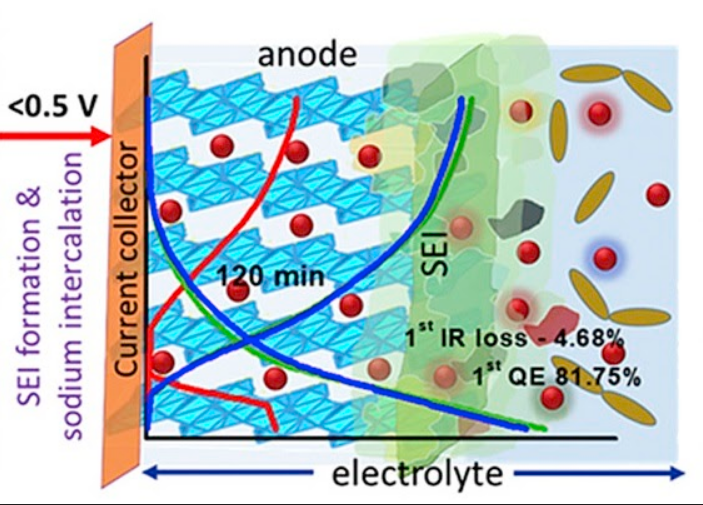


Sodium-ion batteries (SIBs) are one of the highly emerging battery technologies as a promising alternative to the lithium-ion battery for stationary energy storage applications due to their ultra-low-cost. The first cycle losses in the anode material of the sodium-ion battery are very crucial for its overall performance and efficiency. The Energy Storage Group at NCPRE has developed a stable (4000 cycles), high capacity (237 mAh g-1) and high rate capable and super stable anode material for SIBs. In this study, the 1st cycle loss was reduced significantly by utilizing an approach that has been shown to enhance the cyclability of the battery. The current understanding and the technique utilized here will provide a new direction to overcome the 1st cycle loss of sodium titanate anode and can be utilized further to develop sustainable rechargeable sodium-ion battery.

Did you know?
The Nobel Prize in Chemistry 2019 is awarded to John B.
Goodenough, M. Stanley Whittingham and Akira Yoshino for
their contributions to the development of the lithium-ion
battery.